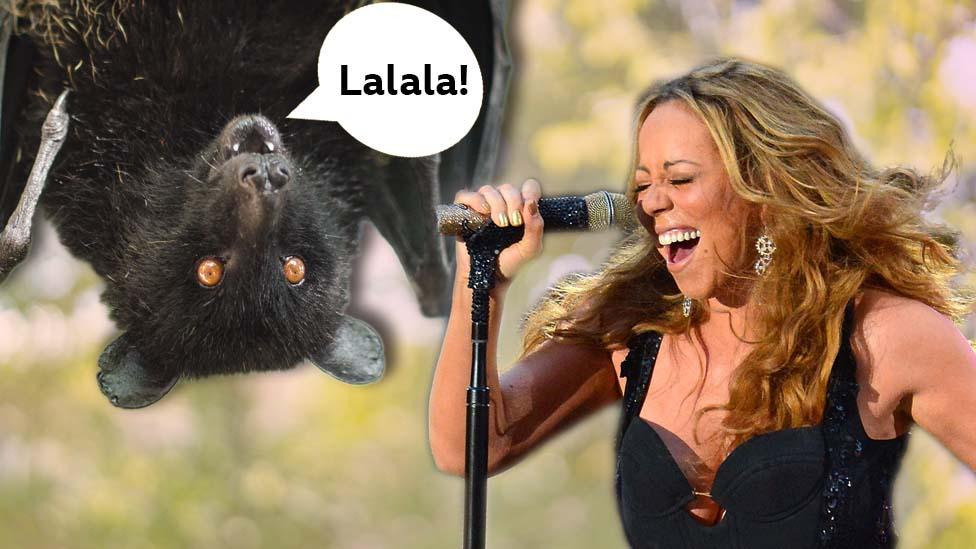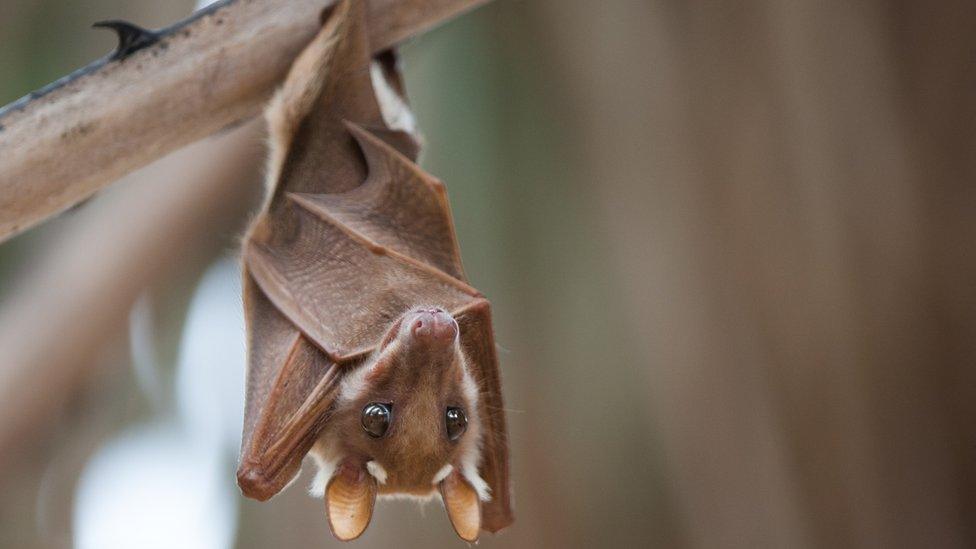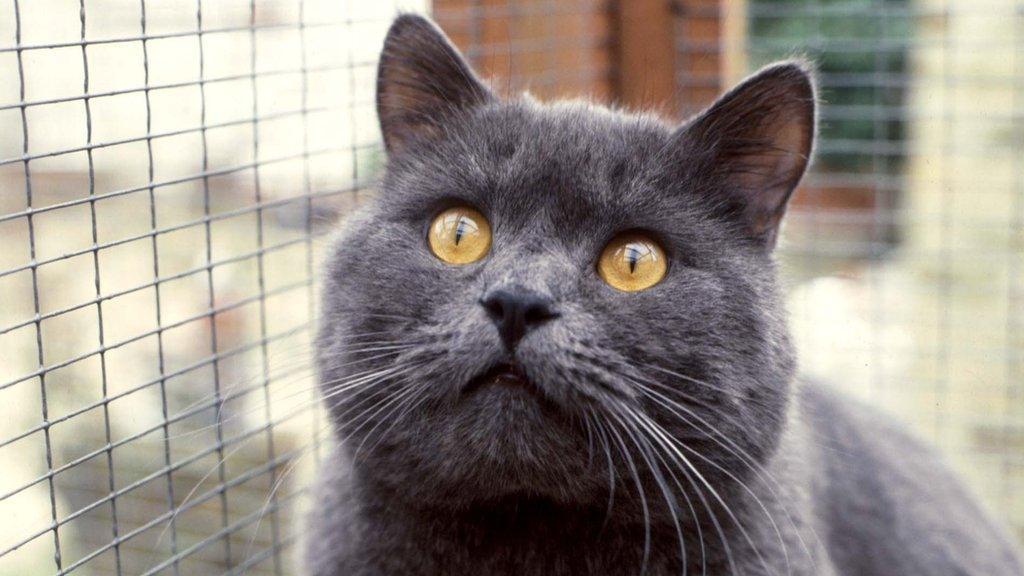Bats have better vocals than singers and sing like heavy metal stars
- Published
- comments

Bats have a better vocal range than human singers and like to growl like heavy metal stars, according to a new study.
Researchers filmed what goes on inside a bat's voice box and found that the animals use the same technique as singers when producing sound.
The bats are able to produce a range of frequencies, also known as a vocal range, that far exceeds what humans can.
They have a vocal range of seven octaves, which scientists say is remarkable, as humans only have about three! Some singers like Mariah Carey can reach a range of four to five octaves, the researchers said.

They weren't able to fully understand the meaning of some of the bat's songs and sounds, but they did discover that bats greet each other with growls and found out more about how bats make sound.
Professor Coen Elemans from the University of Southern Denmark, who led the study, said: "We identified for the first time what physical structures within the larynx (which is the voice box) swings backwards and forwards to make bats' different vocalisations.
For example, bats can make low-frequency calls to communicate with each other, using their so-called 'false vocal folds' - like human singers do".
False "vocal folds" are not used in normal human speech and song. It's known that only death metal singers, from a few cultures around the world use their false vocal folds like bats.
The researcher added that bats make these low frequency calls when they are annoyed with each other, and when they fly away or join a colony.
Who is Mariah Carey?

Mariah Carey is a famous American singer, best known for her Christmas songs and number 1 Christmas classic 'All I Want for Christmas is You'.
She did a festive duet with Justin Bieber of the song in 2011, but the hit was first released back in 1994.
Mariah is known for her remarkable vocal range; she has sung songs of many genres including pop, R&B, hip-hop and soul.
- Published30 November 2022

- Published30 November 2022

- Published29 November 2022

